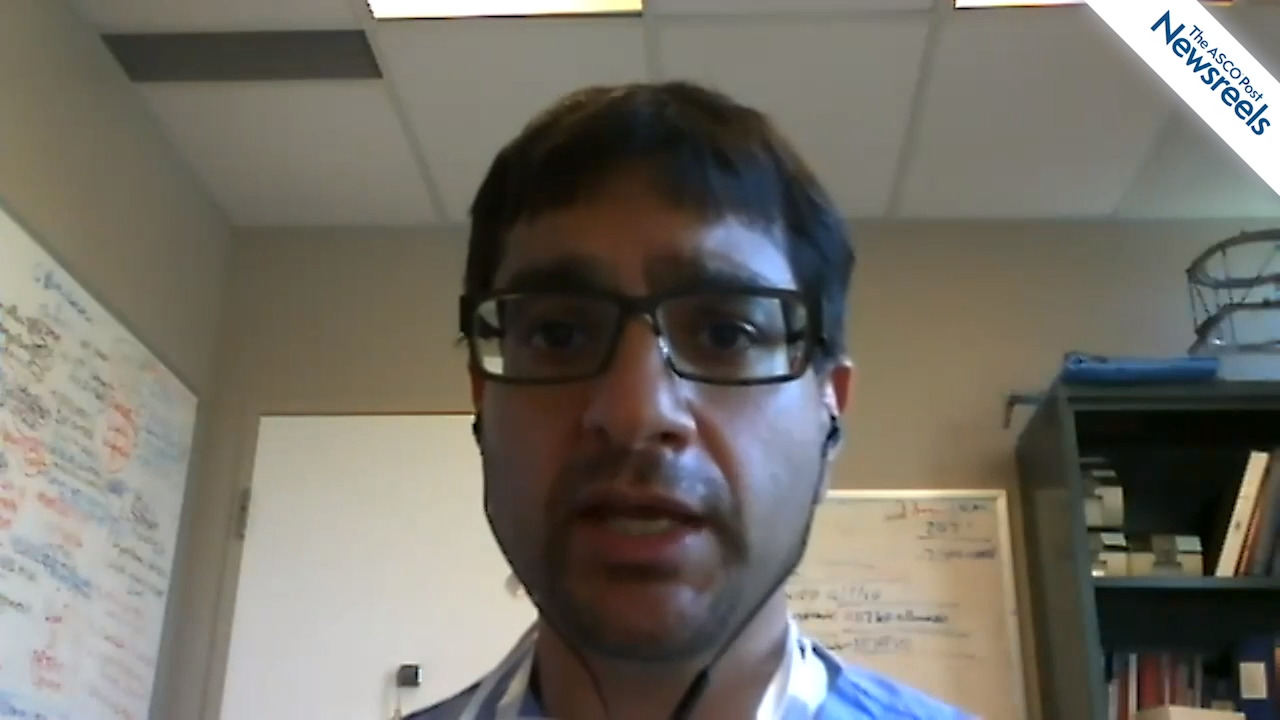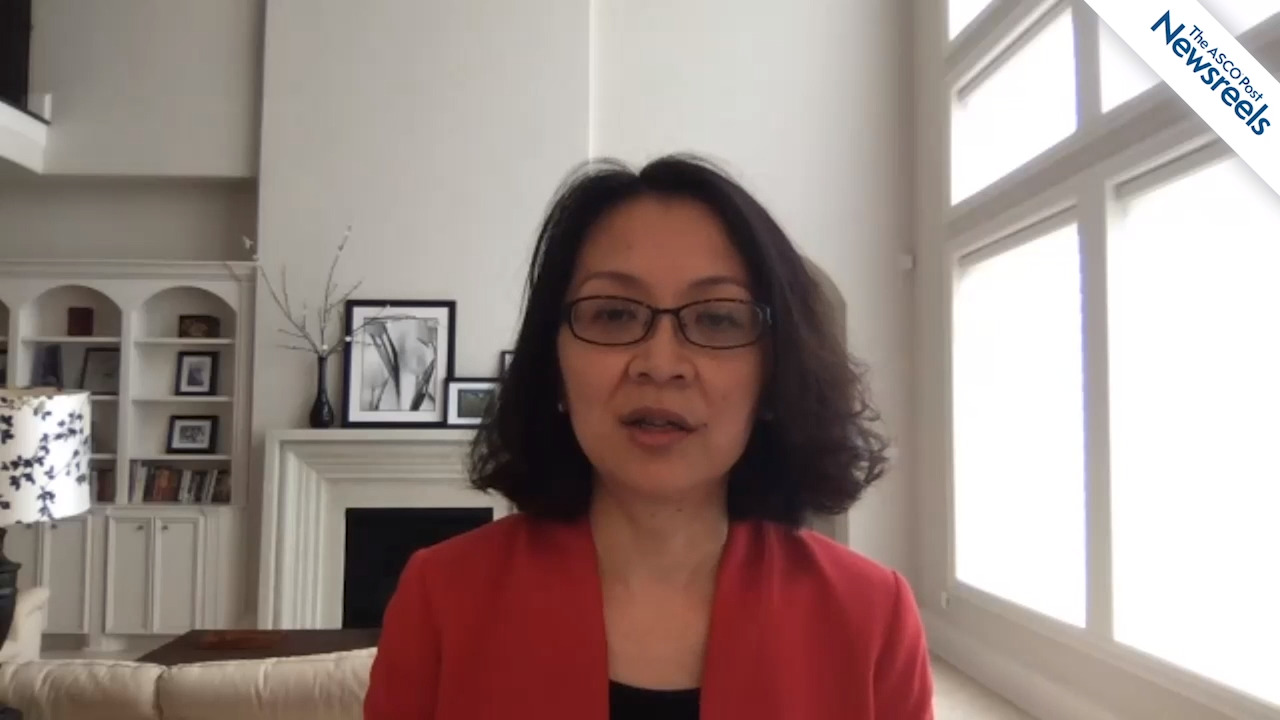Neha Vapiwala, MD, on Prostate Cancer: Imaging and the Decision to Treat With Radiation
2020 ASTRO Annual Meeting
Neha Vapiwala, MD, of the University of Pennsylvania, who served as a discussant for LBA1, summarizes her review of this study of patients with prostate cancer who had biochemical recurrence in the post-prostatectomy setting, who were candidates for salvage radiotherapy, and who received either conventional imaging or PET scans to help determine the course of treatment.
The ASCO Post Staff
Vinai Gondi, MD, of Northwestern Medicine Cancer Center and Northwestern Medicine Proton Center, discusses the preliminary results of an NRG Oncology study of radiotherapy dose intensification using intensity-modulated radiotherapy vs standard-dose radiotherapy with temozolomide in patients with newly diagnosed glioblastoma (Abstract 42).
The ASCO Post Staff
Arjun Sahgal, MD, of the Sunnybrook Health Sciences Centre, discusses results of the first phase III trial to suggest that dose escalation with stereotactic body radiotherapy may be superior to conventional palliative radiotherapy in improving pain outcomes for patients with spinal bone metastases (Abstract LBA2).
The ASCO Post Staff
Jing Li, MD, PhD, of The University of Texas MD Anderson Cancer Center, discusses phase III results showing the use of stereotactic radiosurgery in patients with 4 to 15 brain metastases, compared with whole-brain radiotherapy, may better preserve cognitive function and minimize the interruption of systemic therapy without compromising overall survival (Abstract 41).
The ASCO Post Staff
Daniel E. Spratt, MD, of the University of Michigan Rogel Cancer Center, discusses phase III results of the HERO trial, which suggested benefits of the oral medication relugolix: a substantially faster time to castration with longer duration, fewer cardiac events, and a faster return to normal testosterone levels compared with leuroplide (Abstract 35).
The ASCO Post Staff
Jeff M. Michalski, MD, MBA, of the Washington University School of Medicine, discusses a Children’s Oncology Group study that confirmed data previously reported: Involved-field radiotherapy is noninferior to posterior fossa radiotherapy in patients with average risk-medulloblastoma. However, low-dose craniospinal irradiation is not as effective as standard-dose irradiation in younger children (Abstract 1).





